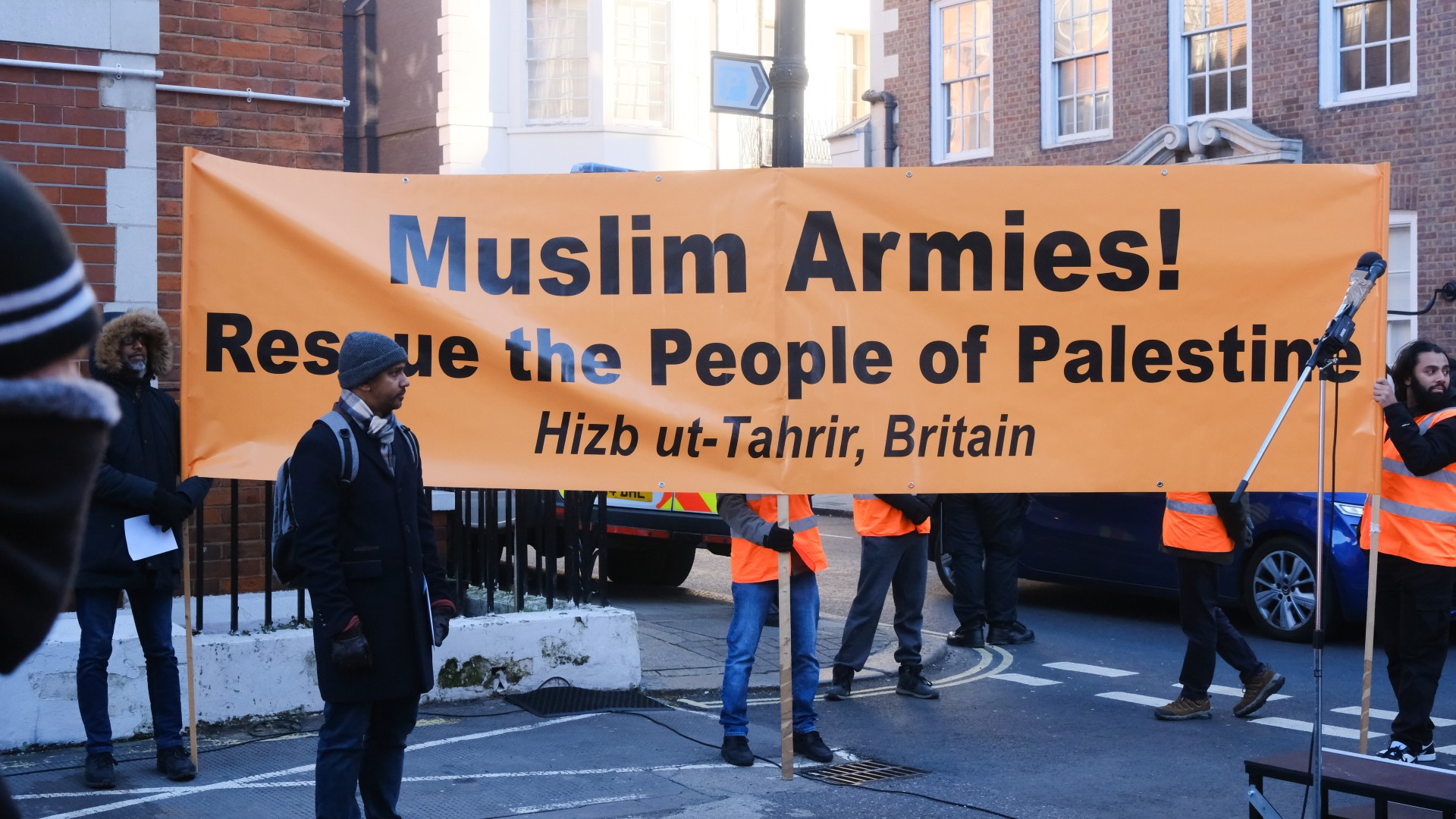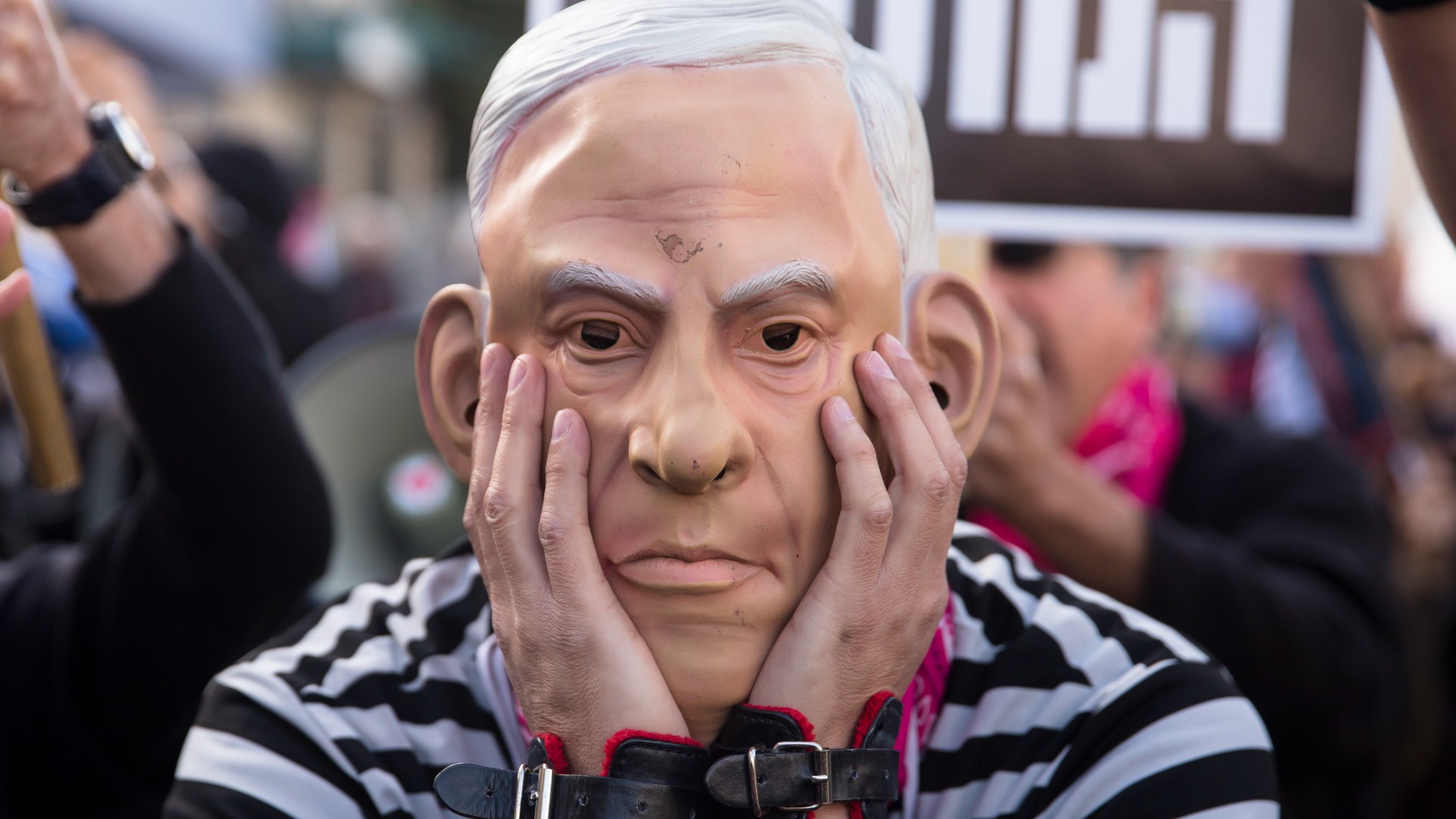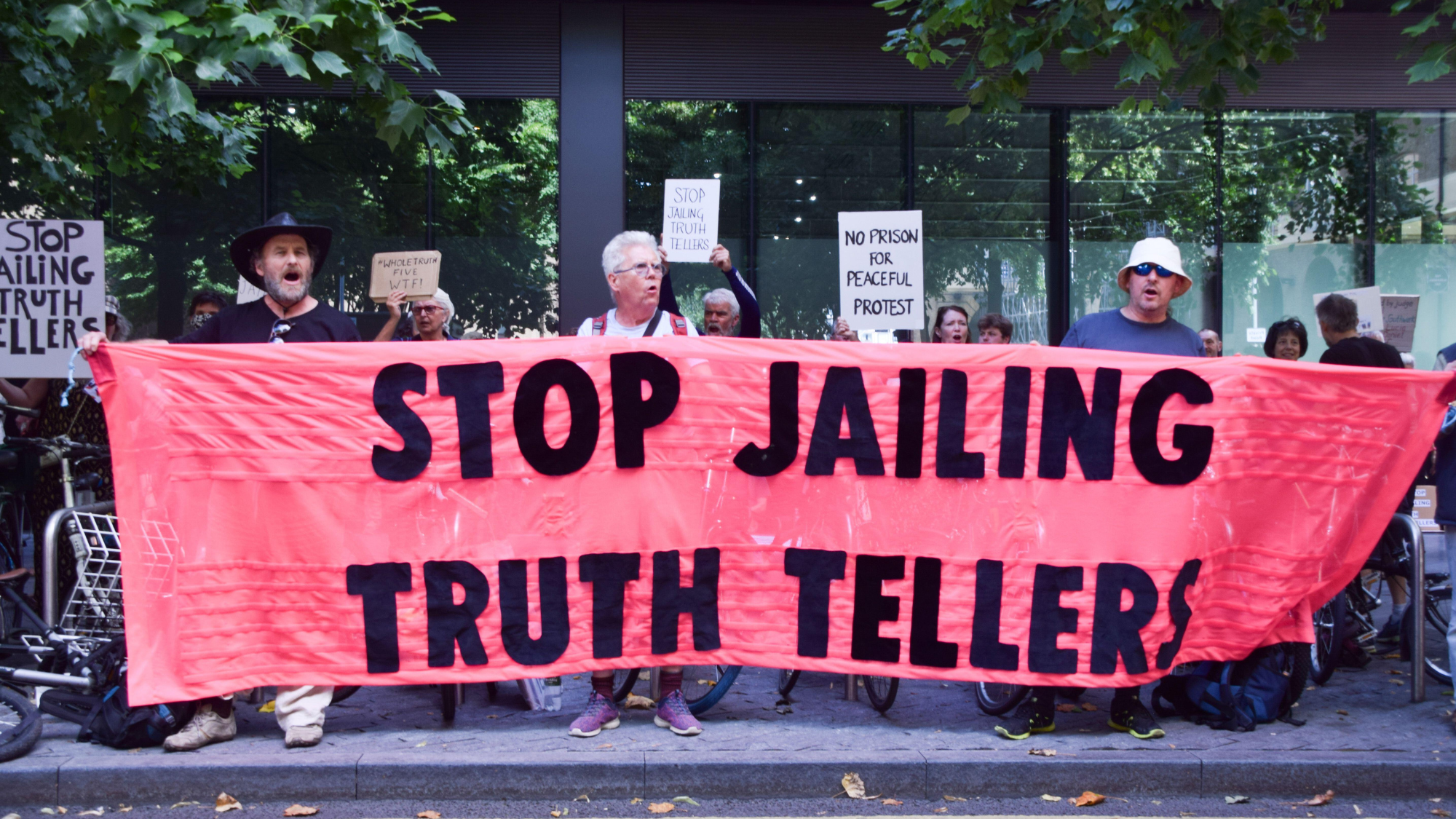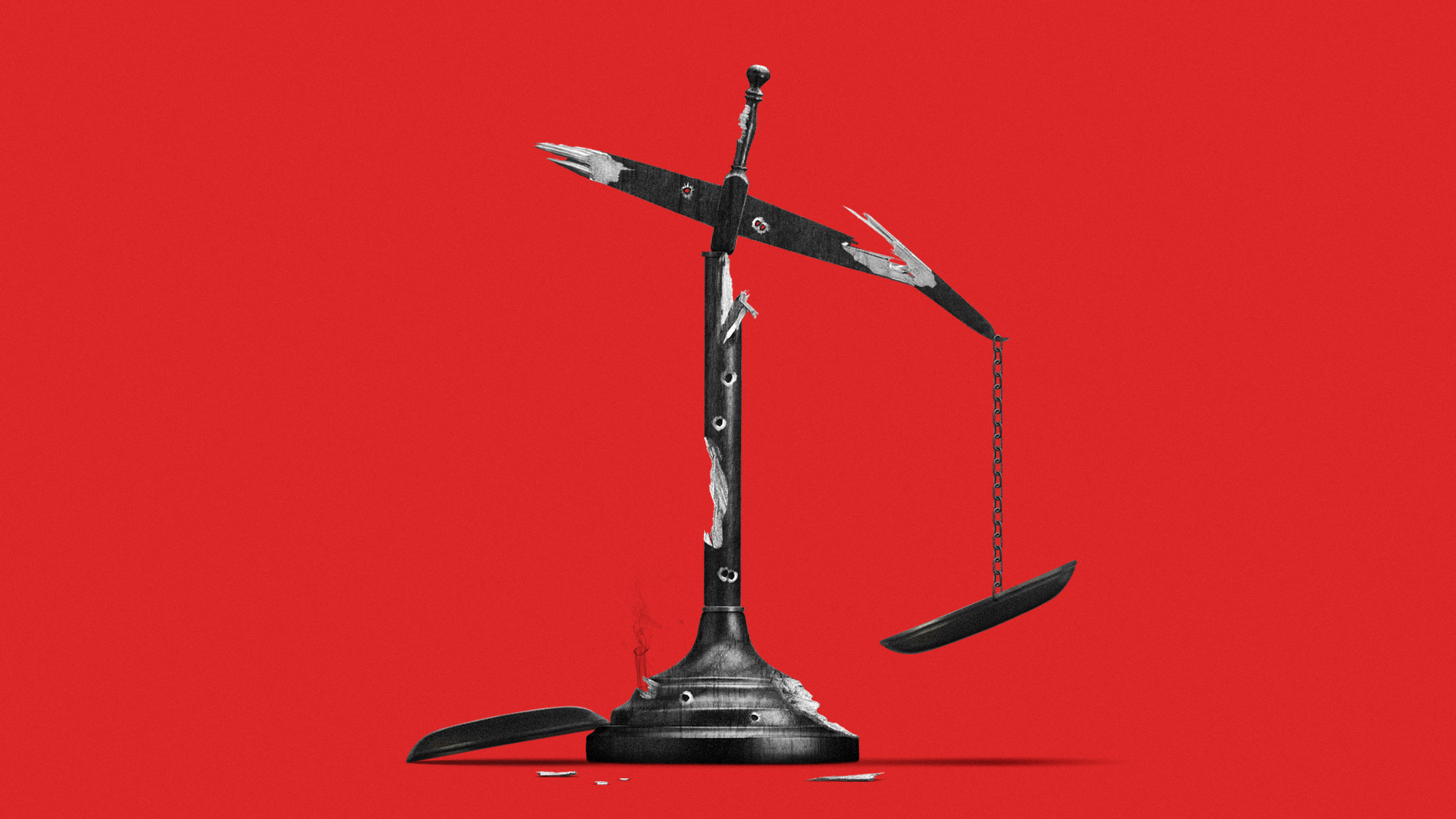Hizb ut-Tahrir: the Islamist group set to be banned by home secretary
'Party of liberation' that aims to re-establish the Islamic Caliphate to be proscribed a 'terrorist organisation' this week

A free daily email with the biggest news stories of the day – and the best features from TheWeek.com
You are now subscribed
Your newsletter sign-up was successful
The Islamist group Hizb ut-Tahrir is to be proscribed as a terrorist organisation and banned from organising in the UK, the home secretary has announced.
Citing the group's vocal support for Hamas's 7 October attack on Israel, James Cleverly declared it an "antisemitic organisation that actively promotes and encourages terrorism". The home secretary said the ban will come into force on Friday provided it is approved by Parliament.
The move will put Hizb ut-Tahrir "on a par with al-Qaida and Islamic State", The Guardian reported, and bring the UK in line with a number of other Western and Arab countries that have outlawed the controversial group.
The Week
Escape your echo chamber. Get the facts behind the news, plus analysis from multiple perspectives.

Sign up for The Week's Free Newsletters
From our morning news briefing to a weekly Good News Newsletter, get the best of The Week delivered directly to your inbox.
From our morning news briefing to a weekly Good News Newsletter, get the best of The Week delivered directly to your inbox.
The background
Founded in 1953 in Jordan by Islamist intellectual Taqiuddin al-Nabhani, Hizb ut-Tahrir's (HT) original focus was Arab unification based on Islam, rather than the secular pan-Arabism popular at the time.
Translated into English, its name means "party of liberation" and it hoped to achieve this through military takeover. The Sunni Islamist group was behind failed coups in Jordan, Syria and Iraq in the 1960s and 70s.
Currently headquartered in Lebanon and operating in more than 30 countries, it "has long been active – and controversial – in Britain", said The New York Times. Established in the UK in 1986, HT's tactics morphed over the years, moving from organising protests outside embassies to recruiting young second-generation British Muslims on university campuses.
Its official aim has remained the same, however, namely to re-establish the Islamic Caliphate that ruled parts of the Middle East following the death of the prophet Muhammad in 632. "But while it claims to disavow violence, the ultimate aim of its totalitarian ideology is the imposition of sharia law worldwide and the destruction of Israel," said The Guardian. "This particularly narrow interpretation of Islam means that it views universal human rights as concepts that are antithetical to Islam, regarding them as a western construction."
A free daily email with the biggest news stories of the day – and the best features from TheWeek.com
The latest
The surge in pro-Palestinian protests following Hamas's terror attack on Israel is "understood to have led to a review of the position" of the group by the UK government, reported The Telegraph.
Under UK law, specifically the Terrorism Act 2000, the home secretary can "proscribe" an organisation based on an assessment "that it commits or participates in, prepares for, promotes or encourages, or is otherwise concerned in terrorism".
This means that it becomes a crime to "belong to that organisation, invite support for it, arrange meetings in support of it or wear clothing that signifies a person is a member or supporter, among other offence,s" said legal news site Jurist. The maximum sentence for such an offence is 14 years.
The reaction
Banning Hizb ut-Tahrir – which has "organised pro-Palestinian rallies with chants calling for jihad, or holy war, against Israel" – is "long overdue", said Jawad Iqbal in The Times.
It has already been banned in Germany, Egypt, Bangladesh, Pakistan and several central Asian and Arab nations, yet successive home secretaries and prime ministers from both Labour and the Conservatives have failed to outlaw it in the UK, fearing it could be challenged in the courts or backfire and boost recruitment.
HT has "years of practice at staying just the right side of the law", said Iqbal, "a game of legal cat and mouse that has allowed it to get away with openly promoting an ideology of hatred for far too long".
In a statement the group said it "completely refutes any idea that it is antisemitic or encourages terrorism" and would challenge the proposed ban "using all available legal means".
"By seeking to proscribe Hizb ut-Tahrir, Britain will join the likes of Putin's Russia, Sisi's Egypt and a host of other authoritarian states in silencing a voice for the restoration of an Islamic civilizational alternative for the Muslim world," the statement added.
Yet there is widespread support for the ban, including from Labour's shadow home secretary Yvette Cooper.
The lack of action against the group for so long was "indefensible and untenable", concluded Iqbal. "The move – better late than never – is a reasonable and proportionate response to the very real threat Hizb ut-Tahrir poses in this country."
-
 Political cartoons for February 15
Political cartoons for February 15Cartoons Sunday's political cartoons include political ventriloquism, Europe in the middle, and more
-
 The broken water companies failing England and Wales
The broken water companies failing England and WalesExplainer With rising bills, deteriorating river health and a lack of investment, regulators face an uphill battle to stabilise the industry
-
 A thrilling foodie city in northern Japan
A thrilling foodie city in northern JapanThe Week Recommends The food scene here is ‘unspoilt’ and ‘fun’
-
 ICC under attack: can court continue to function?
ICC under attack: can court continue to function?Today's Big Question US sanctions 'designed not only to intimidate court officials and staff' but 'also to chill broader cooperation', say rights group
-
 'Libel and lies': Benjamin Netanyahu's corruption trial
'Libel and lies': Benjamin Netanyahu's corruption trialThe Explainer Israeli PM takes the stand on charges his supporters say are cooked up by a 'liberal deep state'
-
 The Just Stop Oil five: 'fanatics' or victims of anti-protest authoritarianism?
The Just Stop Oil five: 'fanatics' or victims of anti-protest authoritarianism?In the Spotlight Climate protesters handed longest-ever prison sentences for peaceful protest
-
 Is international law falling apart?
Is international law falling apart?Today's Big Question Conflict in Gaza is testing the strength of the two intergovernmental courts in The Hague
-
 Will South Africa's genocide case against Israel stop war in Gaza?
Will South Africa's genocide case against Israel stop war in Gaza?Today's Big Question The claim is 'tightly argued' but ICJ's rulings are often ignored